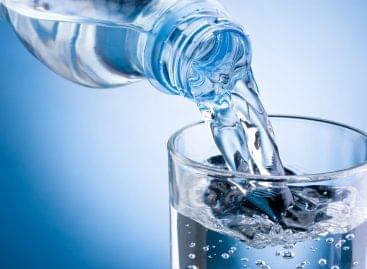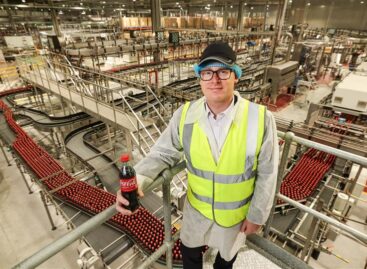Magazine: Growing water consumption, dropping waste production

Istvánné Bikfalvi
titkár
Hungarian Mineral Water,
Fruit Juice and
Soft Drink Association
In 2018 the mineral water segment sold 1,260 million litres of bottled mineral water, which represents more than 50 percent of total non-alcoholic drink sales. According to Istvánné Bikfalvi, secretary of the Hungarian Mineral Water, Fruit Juice and Soft Drink Association, the biggest challenge for mineral water companies is solving the problems related to packaging. The technological level of production is just as good was anywhere in the world.
Per capita consumption was up in 2018, reaching 126 litres/person/year. Hungarian mineral water consumption is in the Top 5 of the European Union. More than half of total consumption is still mineral waters, for which there is growing demand. Ms Bikfalvi added that demand is also on the rise for functional, flavoured waters. PET bottle is the preferred packaging for mineral waters. A growing proportion of PET bottles are made from recycled raw material, called rePET.
The prerequisite of recycling is collecting empty PET bottles, and mineral water and soft drink companies contribute several billion forints to the selective collection of drink packaging via the environmental protection product fee imposed on products. Ms Bikfalvi told that the ecological footprint of PET bottles made from recycled PET granules is one of the smallest among packaging materials. Weight reduction is another way of cutting down on plastic waste: Since 2010 mineral water and soft drink manufacturers reduced the average weight of PET bottles by 20 percent. //
Related news
Mineral waters recalled
🎧 Hallgasd a cikket: Lejátszás Szünet Folytatás Leállítás Nyelv: Auto…
Read more >Coca-Cola HBC invests in Northern Ireland bottling line
🎧 Hallgasd a cikket: Lejátszás Szünet Folytatás Leállítás Nyelv: Auto…
Read more >Related news
Festival buzz at the 60th anniversary EuroShop trade fair
🎧 Hallgasd a cikket: Lejátszás Szünet Folytatás Leállítás Nyelv: Auto…
Read more >No matter how much you save, food and gadgets always take the money
🎧 Hallgasd a cikket: Lejátszás Szünet Folytatás Leállítás Nyelv: Auto…
Read more >Historic price reduction at ALDI
🎧 Hallgasd a cikket: Lejátszás Szünet Folytatás Leállítás Nyelv: Auto…
Read more >








